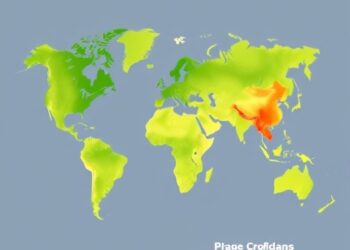SDE BOKER, Israel, August 14, 2024 – Climate change poses a severe threat to food production, making it imperative to find sustainable methods. One such method is aquaponics, which grows fish and vegetables together. Now, Ben-Gurion University of the Negev water researchers have offered a proof of concept for a new closed loop system that produced more fish and vegetables while using less energy than conventional systems.
SDE BOKER, Israel, August 14, 2024 – Climate change poses a severe threat to food production, making it imperative to find sustainable methods. One such method is aquaponics, which grows fish and vegetables together. Now, Ben-Gurion University of the Negev water researchers have offered a proof of concept for a new closed loop system that produced more fish and vegetables while using less energy than conventional systems.
Their findings were published recently in the journal Resources, Conservation & Recycling (https://doi.org/10.1016/j.resconrec.2024.107716).
Prof. Amit Gross, director of the Zuckerberg Institute for Water Research at the Jacob Blaustein Institutes for Desert Research of Ben-Gurion University has been working with his students and collaborators for the last decade on aquaponic systems. Aquaponic systems grow fish while using the fish waste to grow vegetables hydroponically. Coupled aquaponics are closed loop systems that recycle much of the fish effluent rather than reusing it outside of the aquaponic system. Where typically the fish solid waste is disposed of, the research led by Prof. Gross managed to treat it by anaerobic digestion and recover energy and nutrients into the system to form a near zero waste unit.
After more than two years of testing, Prof. Gross’s system demonstrated 1.6 times higher plant areal productivity, 2.1 times lower water usage and 16% less energy consumption per kilogram of feed than conventional systems. His calculations suggest that upscaling to about one ton of fish will allow operation of the system with no need for external energy, less than 1% water exchange, negligible waste production as well as significant carbon sequestration.
Thus, it has the potential to be a sustainable stand-alone unit and supply food efficiently anywhere.
“Feeding the more than 8 billion people on the planet while reducing greenhouse gas emissions will require innovative technologies. Those that combine two functions in one are obviously preferable. Fish are a sustainable high-quality source of protein with a far smaller carbon footprint than most other sources. Combining fish growth with vegetable production and preventing waste is a win-win-win,” says Prof. Gross.
Additional researchers included: Dr. Ze Zhu and Dr. Uri Yogev from Ben-Gurion University and Prof. Karel Keesman from Wageningen University and Research in the Netherlands.
The research was supported by the ICA Foundation, British Council, China MUST Project (ZDYF2019198), the PRIMA program supported by the EU (GA# 2242), Israeli Ministry of Innovation, Science and Technology and the EU Horizon 2020 research and innovation program (862555) through the BlueCycling project.
Journal
Resources Conservation and Recycling
Method of Research
Experimental study
Subject of Research
Animals
Article Title
Promoting circular economy: Comparison of novel coupled aquaponics with anaerobic digestion and conventional aquaponic systems on nutrient dynamics and sustainability
Article Publication Date
23-May-2024




